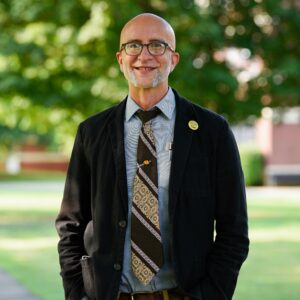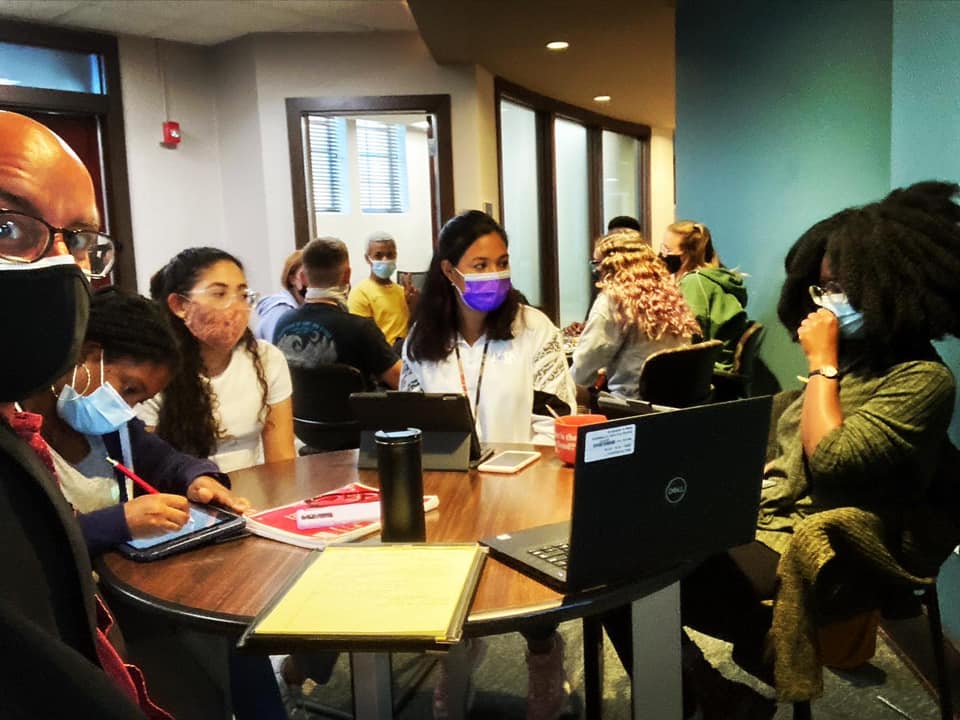
I love questions. Consider this one with me. What year is it, really? It is 2023 CE [at the time of my writing this], right? Don’t other cultures have different era-dating systems, though? For many Buddhists, it is 2566 BE (for Buddhist Era). For many Jews, it is 5783 AM (Anno Mundi, for the year after creation). For Muslims, it is 1444 AH (Anno Hegirae, which means the year of the Hijra when the Prophet Muhammad founded the community of Medina). What if we turned to astrophysics, to dating based on the universe’s expansion speed? All of them are correct in a way. However, what’s really interesting to me is the question, how the question about the year can lead to other issues such as the nature of truth or European colonialism and globalization. One of my favorite things to do is formulate and ask questions. It’s fascinating to me because we can ask questions about things we only know a little about or even things we know really well. Even more importantly, we listen to others actively when we ask good questions. What are your questions? Any favorites you find yourself asking often?
Because of my love for questions, I earned my PhD in 2009 from The University of Iowa. I research about questioning in hermeneutic phenomenology (what it feels like to question), philosophy of language (the grammar of interrogative sentences), and comparative questions in philosophies of religions (can divine beings ask genuine questions?). I am especially committed to how these relate to global social justice issues, like racial equity in law and health care.
I grew up in a small town in Iowa called Lost Nation. I took seven years to complete my undergraduate degree, a double major in both Philosophy and Religious Studies, attending state universities, community colleges, and small liberal arts colleges long the way. I went straight to a PhD program in Philosophy at Purdue University, but transferred to the University of Iowa to complete it. As a kid, I spent most summers detassling and roguing cornfields in the morning and landscaping cemeteries in the afternoon, then playing baseball in the evening. I also had a garage band in high school and college—we opened for Chevelle and for Fishbone, too. If you’d like to get to know me better than this brief bio, please feel welcome to reach out over email. We can set up a time to chat!
I teach a breadth of courses, such as PHL 1003 Critical Thinking and Logic, PHL 1113 Ethics Religions Cultures, PHL 2113 Phenomenology and Existentialism, PHL 2123 Critique of Racism, PHL 3013 Greek to Arabic Philosophies, REL 3033 Philosophy of Religions, REL 2073 Asian Philosophies and Religions, PHL 3123 Environmental Ethics, among many others. I recently took students in my REL 2073 Asian Philosophies and Religions course to the local Buddhist temple to meet the head monk. See the pictures below!
Students can look forward to fun and dynamic daily discussions in my classes. We often have our minds blown through discussing classic and contemporary philosophy books, using the high impact practice of asking deep questions. I also use a systematic structure that scaffolds content, with reliable organization and routine, and I return feedback on assignments quickly. One thing I love about our class discussions is the consistent connection of course content to “real life” applications in law, business, culture, art, music, and more.
Special Projects / Initiatives
Many University of Ozarks Philosophy Majors and Minors have attended philosophy conferences, and even presented their own research at them. I have worked with students on research and presentations on topics ranging from Islamophobia, sexual objectification in literature and social media, atheism and humanism, and more. I personally have researched and published in a variety of areas of scholarship, including work on comparative philosophy of religions, Zen Buddhism, accreditation in higher education, health care ethics, philosophy of education, philosophical theology, philosophy of language and
questioning, Soren Kierkegaard, the Book of Genesis, comparative philosophical cosmology, Orientalism, and more. Below are some pictures from such presentations.
I just completed my third book, titled “Interpretation: A Critical Primer,” with Equinox (estimated date of publication in October 2023). My second book “Philosophical Hermeneutics and the Priority of Questions in Religions” (Bloomsbury, 2022) examines the roles questions play in religious discourse. My very first book “Using Questions to Think” (Bloomsbury, 2021) examines the roles questions play in critical thinking and reasoning.
You can find links to my books and articles here:
https://www.researchgate.net/profile/Nathan-Dickman
Beyond the classroom and research, I advise the Ozarks’ Philosophy Symposium, the campus philosophy club. We hold regular gatherings throughout each semester where we bring philosophical questions to life, on topics such as free will, war and propaganda, virtual identities, social values about sexualities, and more. I have also worked with the campus’s Black Student Association on promoting awareness about racism and racial equity. Included below are pictures from some of our meetings!



